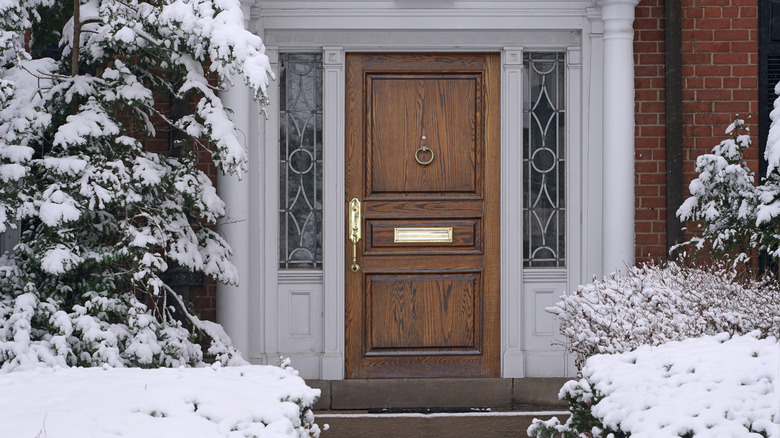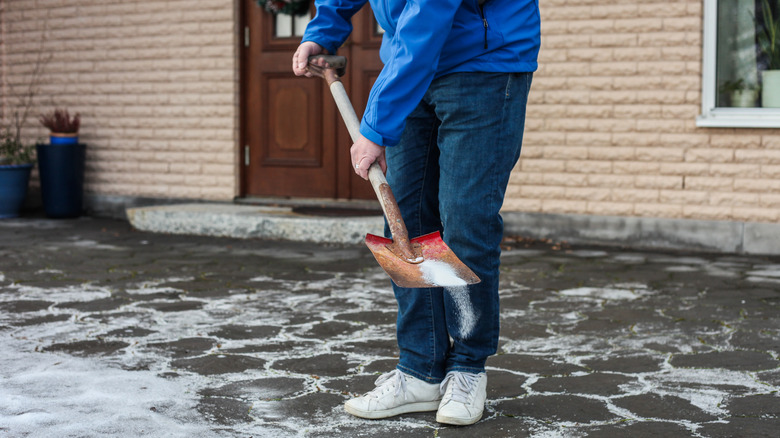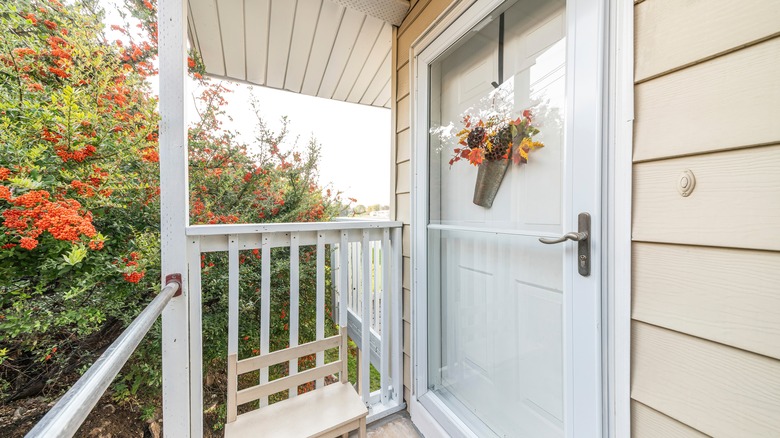Is Winter Weather Giving Your Doors A Hard Time? Here's What Our Home Repair Expert Thinks
Winter weather brings its fair share of problems for your home, including your exterior doors. Doors can expand outward in the cold, which then makes it difficult for you to close them, not to mention that extras like latches and chains may not work properly because of the changed door shape. There are several reasons why this can happen. Speaking exclusively to House Digest, Brett Labeka, Virtual Generalist Expert for home maintenance and repair app Frontdoor, shared why cold temperatures can impact your doors negatively. The home repair expert revealed that there are three main reasons why your doors may be suffering in the winter.
Firstly, switches between temperature. "Frequent changes in temperature cause wood to expand and contract, leading to warping or cracking," Lakeka stated. Secondly, "snow, ice, and rain can lead to water seepage, which damages the door material, especially wood." Thirdly, Labeka explained that the chemicals (including salt) used for de-icing "can corrode metal parts of the door or damage the finish on wooden doors."
Watch out for the key signs to see if your door has weather damage
If you're unsure whether your exterior doors have been damaged, Brett Labeka shared with House Digest that there are several ways to tell. One of the most common ways is to look for "difficulty in opening/closing [and] warping or swelling of the door." Another clear sign of damage is "visible cracks or splitting, especially in wooden doors," though this can happen to doors not made from wood, too. Moreover, if you notice a sudden draft creeping in when winter comes, Labeka revealed that this could be down to a faulty door seal.
On the cosmetic side of things, Labeka said, "Peeling or flaking paint [is] indicative of moisture damage," and that rusty hinges or locks are also often a sign that something isn't right. However, per Labeka, "spraying hinges and locks with CRC high performance lubricant or WD-40 will help keep your doors swinging and closing properly in winter months." Finally, an obvious sign of damage is if your door isn't lining up properly with the strike plate (the metal fixture your lock slots into). "As the wooden door or the door frame warps or shrinks during winter, this can eventually cause a misalignment concerning the strike plate," Labeka stated.
There are ways to stop your door from being damaged in winter
Now you know the signs to look out for, Brett Labeka told House Digest what you can do to stop the damage from occurring. The first and most important method of prevention is to keep up maintenance on your exterior door. "Apply paint or sealant to protect the door from moisture," Labeka recommended. Another key tip Labeka gave is to "use de-icing products carefully [and] avoid direct contact with the door."
If you have more of a budget to work with, installing a storm door will offer your exterior door added protection and give you peace of mind. Labeka also recommended, "weatherstripping, [which] ensures a tight seal against drafts and moisture." Above all, check your door regularly for signs of damage. If you catch signs of damage early and then take preventative measures, it will save you a lot of hassle in the future. As for the best materials for an exterior door, Labeka shared, "Materials like fiberglass, metal, or specially treated wood can withstand winter weather better," so keep an eye out for them during your search.


